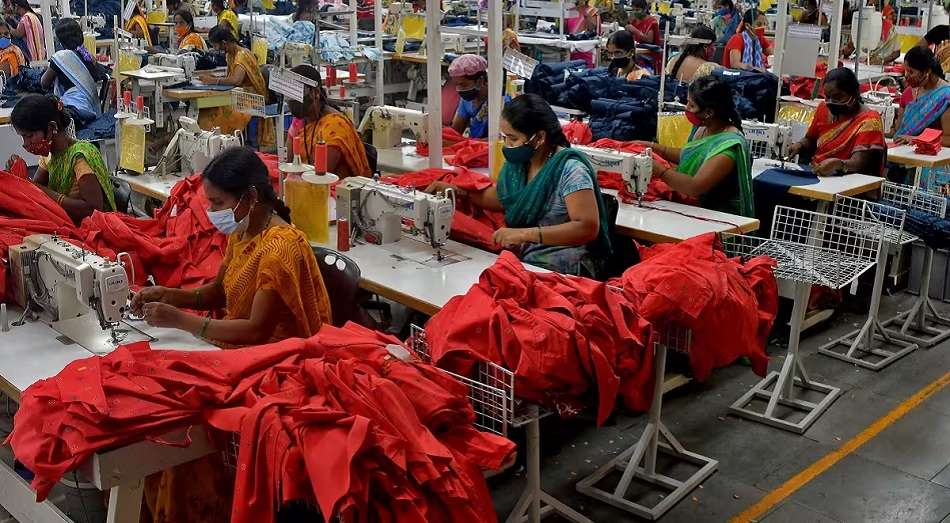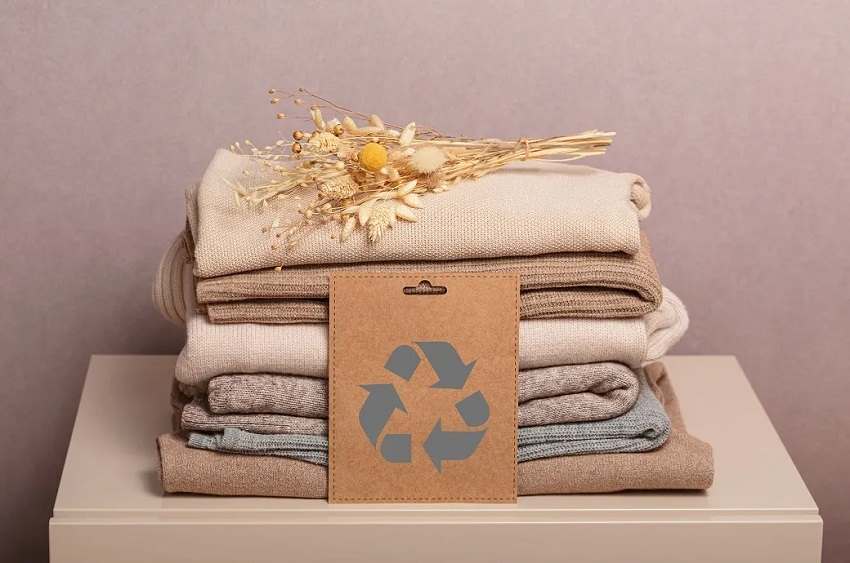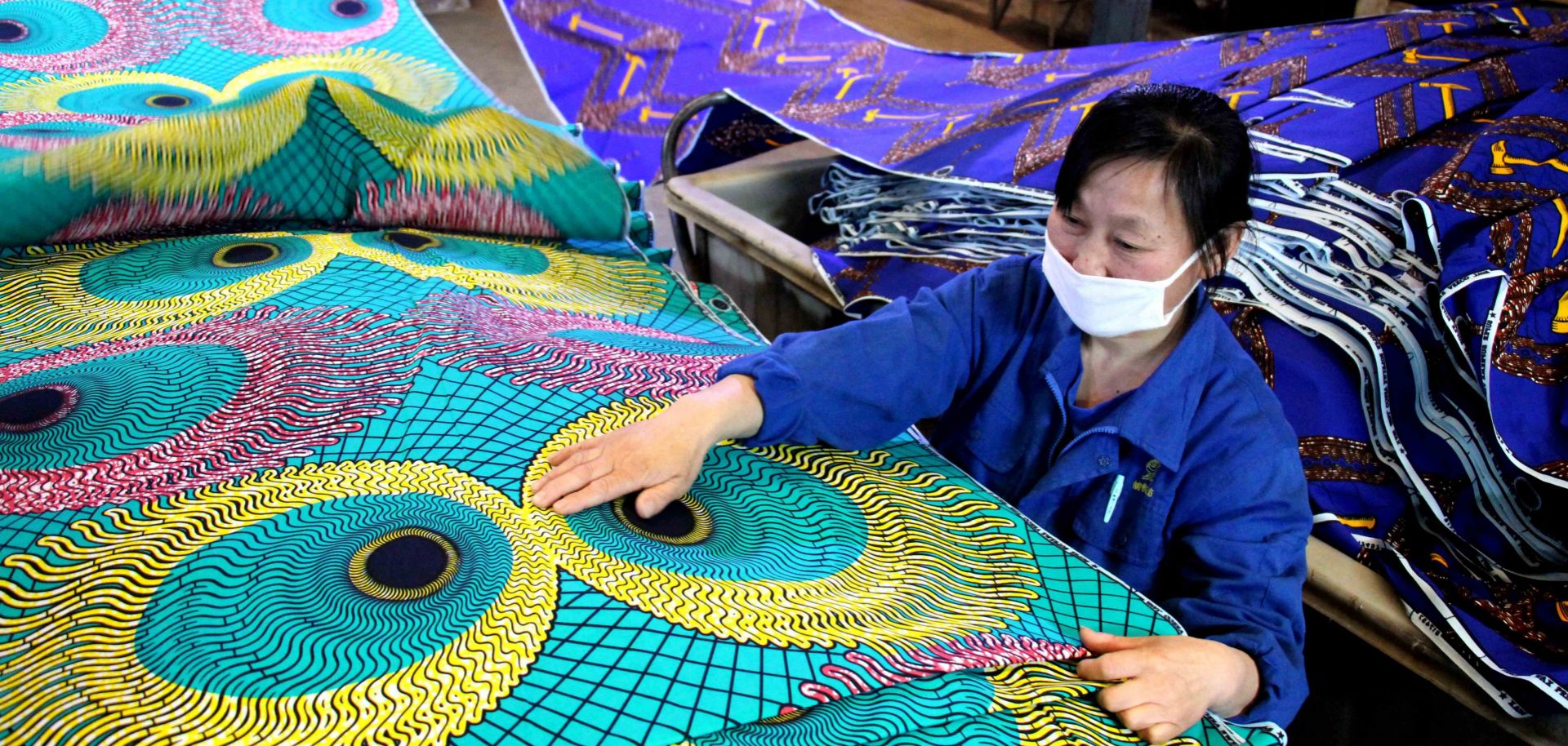FW
At a recent meeting, Lenzing’s board reappointed Stefan Doboczky as its Chief Executive. His new contract begins on June 1, 2018 and runs till the end of 2022. Doboczky joined Lenzing, a provider of premium cellulose fibres. The company is based in Austria. Hanno Bästlein, Chairman of Lenzing’s supervisory board said, “In recent years, Stefan Doboczky and his colleagues on the management board have been able to make excellent use of the favourable market conditions on the basis of the previous restructuring in order to transform an Austrian company with foreign investments into a truly global player with strong Austrian roots.”
In addition to Doboczky, the management board consists of Robert van de Kerkhof, Chief Commercial Officer; Thomas Obendrauf, Chief Financial Officer; and Heiko Arnold, Chief Technology Officer. Last year, Lenzing announced it was opening a new Tencel fibres facility in Mobile, Ala. When open in 2019, it will be the largest Tencel fibre factory in the world.
The Association of Italian Textile Machinery Manufacturers ACIMIT, and the Italian Trade Agency for the promotion and internationalisation of Italian businesses abroad, will be organising an exhibition at the upcoming edition of Techtextil Russia, the specialized trade fair dedicated to technical textiles and nonwovens, to be held in Moscow from March 20 to 23, 2018. Around 22 companies will showcase their wares at Italy’s exhibition space, including ACIMIT members like: Beta, Bombi, Bonino, Cibitex, Cognetex, Durst, Fabotex, Fadis, Ferraro, Guarneri, Mcs, Cosmatex, Pugi, Ratti, Reggiani, Salmoiraghi, Sariel, Santex Rimar Group, Smit, Sicam and Tessil Gomma.
The trade fair takes place at a time when Russia’s textile sector is growing. Russian authorities have initiated pilot projects specifically targeting the modernisation of existing technology in the textile sector and increasing the supply of local products in the Russian market. The production of technical textiles, in particular, is deemed by competent government authorities to constitute a driver in reviving the fate of the Russia’s textile industry.
As ACIMIT president Alessandro Zucchi says the restructuring phase provides an opportunity to further strengthen existing relations between Russian textile manufacturers and Italian technology suppliers, which are already in good stead, thanks to the promotional initiatives launched by ACIMIT and the ICE-Agency over the past few years. The result of this interaction between Italy’s textile machinery manufacturers and Russian producers is the Russian market’s constant presence among primary destinations for Italian exports of textile machinery.”
In 2016, Italy exported €22 million worth of textile machinery to Russia, whereas figures updated to the first seven months of 2017 show a 51 per cent increase compared to the same period for 2016, for a corresponding value of €11 million. ACIMIT represents an industrial sector comprising around 300 manufacturers (employing close to 12,000 people) and producing machinery for an overall value of about €2.7 billion, with exports amounting to more than 85 per cent of total sales.
Over the last decade, denim manufacturing saw 15 per cent CAGR. Currently, the industry has an annual installed capacity of 1.5 billion meters, which is the world’s second largest after China. Sales turnover is estimated at Rs 15,000 crores. The industry gives direct employment to four lakh workers, excluding indirect employment. Currently, the total number of denim fabric mills operating in the country has touched 46 as against 30 mills in 2012, an increase of 50 per cent. The installed denim fabric production capacity has also increased from 800 million meters in 2012 to 1,500 million meters with a capacity expansion of 150 million meters.
The current domestic consumption of Indian denim fabric is 750 to 800 million meters, growing at an annual rate of 12 per cent. Further, denim fabric exports are estimated at 200 million meters. As per the Ministry of Commerce records denim exports for 2016-17 were $316 million, registering a total of 11 per cent as against 2014-15 which it was $355 million.
DMA Chairman, Sharad Jaipuria warns, “Post-GST, the denim industry has temporarily closed down 30 to 40 per cent capacity across the board and at present is operating at 60 to 70 per cent capacity due to slowdown in demand and over-capacity in the industry. If the present trend continues there can be more production cuts,”
And Akhilesh Rathi, Director, Bhaskar Denim says besides over capacity, the industry has also been paralysed due to the reasons that denim needs to be cut, sewn and washed before it can be marketed. These upstream activities are majorly done in the unorganised sectors located at the SSI hubs of Gandhi Nagar and Tank Road in Delhi, Ulhasnagar in Mumbai and Bellary near Bangalore. These hubs mainly slowed down due to the liquidity crunch in the economy post demonetization and the slow acceptance of GST by small players to become part of the formal economy. As almost 85 per cent of the fabric is sold in the domestic market, denim mills are badly hit.
Amit Dalmia of R & B Denims feels since upstream activities of garment sewing and washing in SSI hubs will take a while before they change for working smoothly with the formal banking system, we are not foreseeing any short-term recovery of the market. This has led to shutdown / slowdown of many denim mills and loss of jobs in this industry.
In a veiled criticism of the Modi government, the Swadeshi Jagran Manch (SJM), a Sangh Pariwar outfit focussing on strengthening self-reliance on the economic front, said there has been huge loss of job in the country despite strong economic indicators in the last few years. SJM National Co-Convener, Satheesh Kumar said there was serious job loss following dumping of cheap Chinese products in the country. “The big reason behind the job loss was the breakdown in the manufacturing industry. Across the country our manufacturing industry, especially the Small and Medium Enterprises (SME) and traditional sector, incurred a heavy loss and were forced to be close down even when the country was giving strong indicators on the economic front,” he decried.
Industries including the textile industry at Panipat, the cycle and sewing machine industry at Ludhiana, the cracker industry in Sivakasi and the garment industry in Tirupur suffered huge loss despite the government’s ambitious project ‘Make In India’, the supply chain of China’s manufacturing goods was running riot. The economy was stable and economic indicators like Sensex and Nifty indices had crossed the 34,000 and 11,000 marks respectively. The rupee has grown strong and stood at `63.65 per US dollar.
“We are a country of young people. We need maximum jobs to be created. Despite the launching of Make in India project, the current system is not helpful for the country,” Kumar noted. The US model and the Western market model cannot address the country’s unemployment issue. Swadeshi development model is what suited India. “In the Swadeshi concept, the young generation should become entrepreneurs,” he advised. Educated youths should opt for launching Startups, SMEs, and turn to agriculture instead of waiting for a government job or becoming an employee in a private firm 42 per cent of the employment is in the agriculture sector and 58 per cent depend on it. But the income of the farmers is very low as the input cost is very high. It has to be brought down.
The first ever organic cotton certificates in Ethiopia have been distributed to 200 cotton farmers in the country’s Rift Valley region where yield have risen 100 per cent and price per kg of cotton has risen up to 77 per cent. This project is being funded by the fashion reuse charity TRAID, supported by the Pesticide Action Network UK and was delivered in-country by PAN Ethiopia.
The project, launched in 2013, takes place in North Omo, Gamo Gofa Zone in the Arba Minch Zuria and Mirab Abaya Districts of the Southern Ethiopian Rift Valley.
Organic cotton production in some parts of Ethiopia have raised controversy in the past due to accusations of land grabbing issues but this project is based in a different region of the country from where earlier, issues were reported. The venture was started as an integrated pest management (IPM) project. Over 2,800 cotton farmers in Ethiopia are currently involved in this project. Around 200 cotton farmers in Ethiopia are the first ever in the country to receive organic certification of their crop which was overseen by Control Union as part of an on-going project with fashion reuse charity TRAID, Pesticide Action Network UK, and PAN Ethiopia.
The project trains ‘lead’ farmers, who then provide support to 10 ‘follower’ farmers in their area. Farmers are trained in soil and water health, ecological pest management principles and learning to grow other crops along with cotton.
Maria Chenoweth, CEO, TRAID said, “Since 2009, TRAID has committed nearly £1 million to support cotton farmers to stop using hazardous pesticides and use safer more sustainable alternatives. In Ethiopia, the farmers involved in this project will now get the organic premium for their cotton and are the first in the country to do so. It’s a hugely significant moment and the project is well on its way to more farmers becoming accredited.”
Tadesse Amera, Director, PAN Ethiopia says, “The project has helped farmers to achieve yields higher than those in conventional farming and has reduced agro-chemical dependency and its related negative human health and environmental impacts.”
DuPont Industrial Biosciences (DuPont) announced a collaboration with Wools of New Zealand (WoNZ) to create a new platform of yarn for home textiles that will offer enduring performance characteristics with a more sustainable, eco-friendly look. Bringing together world-leading source traceability and patented technology from WoNZ with DuPont’s global leadership in bio-sustainable, high-performance materials inspired this collaboration of expertise and products, scheduled for release in 2018.
DuPont Sorona Global Segment Leader John Sagrati noted, “Wools of New Zealand is truly a leader in responsible wool supply. This level of care, along with their devotion to innovation and quality control is exactly what we at DuPont seek in partners, They occupy a premium position in their market and have a proven track record of performance and sustainability with the unique capability to deliver consistent, tailored fibres.”
WoNZ Chief Executive Rosstan Mazey said, “We are genuinely excited to partner with DuPont Industrial Biosciences, a business that has been able to bring biomaterials to market on a commercial-scale. Like us, DuPont is committed to delivering added value innovation without compromising the planet or its inhabitants. The combined resources and know-how in order to create this exciting, brand-new yarn is a perfect fit with our mission to change the game through innovation and to connect the people who grow our fiber with the end consumer.”
DuPont’s industry-leading excellence in the biomaterials industry has received a number of accolades, including the Platts Global Energy “Breakthrough Solution of the Year” award for a partnership with ADM on a novel process to produce FDME from fructose; Frost & Sullivan’s award for 2017 European Company of the Year Award for bio-based materials; and most recently, PLASTICS’ 2017 Innovation in Bioplastics Award.
The upcoming Bangladesh Garment Manufacturers and Exporters Association (BGMEA) election took a dramatic twist after a new platform emerged to contest in the poll to ensure that leaders of the trade body are not selected arbitrarily. The platform, Swadhinata Parishad, unveiled its nine members at a press briefing in Dhaka. The garment sector's apex trade body was all set to get a new set of leaders through favouritism and not by ballot.
Shahidul Islam, Managing Director, Rupa Group and a former Vice-President of the BGMEA, was set to be formally announced on March 7 as the new president for the next two years. The convener of Swadhinata Parishad is Md Jahangir Alam, MD of Design and Source.
The other members are: Md Aminul Islam of Venix Bangladesh; Shahidur Rahman of Nova Apparels; Golam Mowla Chowdhury of Parents Sweater; Omar Faruk of Alliance Apparels; Ayesha Akhtar of Way Mart Apparels; Mahmud Hossain of DK Global Fashion; Ansarul Alam Lincon of Azra Enterprise; and Humayun Rashid Jony of Olira Fashion.
In a statement, the platform said the BGMEA has become an ineffective organisation as the leadership of the association has not been decided by ballot for a long time. “As a result, general members are being deprived of proper services and are facing harassment and negligence in some cases,” it noted. Swadhinata Parishad has decided participate in the election to choose leaders through direct member votes.
The Karnataka government has given the green signal to Kerala-based Kitex Garments to invest Rs 493 crore for a ready-made garments unit for infants in Hassan, Karnataka. The chairman and Managing Director of Kitex Garments, Sabu M Jacob, disclosed, “The government of Karnataka has given approval to the project. Now depending on how fast the government clearances comes through, the project will start.
Our plan is to start commercial production by March 2019.”At a recent meeting, Karnataka’s State Level Single Window Clearance Committee cleared 52 new projects valued at Rs 5,233.82 crore. Of this, investments valued at Rs 2,369.56 crore are approved for Bengaluru.
A release from the State Information Department noted, “An investment of Rs 2,864.26 crore has been approved for places outside Bengaluru. This reiterates the constant endeavour of the government to have overall industrial development of the State.” Jacob said the garments unit would be located in a steel building which would be imported from the Gulf — most likely Saudi Arabia. It will be nut-and-bolts job and would be set up very fast.
“Initially, the unit will have capacity of 1,500 to 2,000 people. In Phase 1, it will produce up to 2-lakh pieces of infant garments. After that, we will expand every six months. We intend to complete the expansion by 2021,” he disclosed. Andhra Pradesh is also luring Kitex Garments to take the company’s investment to that State by offering various sops to the company. The Andhra Pradesh government has given some very compelling proposals to invest in that State. For instance, it has offered free land, support in setting up the building, power at Rs 1 per unit and salary for the staff for three years, he informed.
Trident which has over 300 MBOs in India, is one of the largest exporters of home textile products from India. Trident exports to over 100 countries across six continents with clients like Target, Ralph Lauren, JC Penney, IKEA, Wal-Mart, Macy’s, Kohl’s, Sears, Sam’s Club, Taj, Oberoi Hotels, Sheraton Hotels, ITC Hotels and DMart. In FY17, 55 per cent of the brands net revenue was contributed by exports. In the bath and bed linen segment, 89 per cent of net revenue was accounted for by exports, primarily to the US as the domestic market is led by unorganised players.
The brand held 13 per cent share (of India’s 40 per cent share in CY16) in international towel exports to the US, while its share in Indian towel exports to that country was 32 per cent. As bed linen capacity is speeded up, the company aims to gain share in the US bed linen market by leveraging its existing client base from the terry towels segment.
Trident is focussed at achieving Rs 1,000-crore sales from the home textiles business in the domestic market by 2020 and double the segment’s contribution by up to 20 per cent. The company is considering adding new products, including rugs and pillows as it aims to be a complete home textile brand, besides expanding the retail network here.
The brand is set to achieve these by adding new categories and enhancing brand presence. The company gets 70 per cent of its sales from the US market, 20 per cent from the rest of the world and 10 per cent from the domestic market in the bed and bath linen segment.
Gradually as they will increase market share in India the shift will then be 60-65 per cent from the US market, 20- 25 per cent from Europe and the rest of the world and around 15-20 per cent from the domestic market in the next 2-3 years.
Sweden-based H&M has apologized for what many said was an insensitive association between the young model and a hateful slur against black people. It stated it had removed it from all its marketing. The advertisement was widely criticised for being racist, including by Canadian pop star The Weekend, who collaborated with H&M, the world's second-largest clothing group, on two collections in 2017. The company would not again after seeing the advertisement.
The word 'monkey' has long been used by some as a racial slur. Models for Diversity, a British-based organization advocating for more inclusion in the fashion industry, was one of many groups questioning how the photo made it through marketing teams and out into the world.












